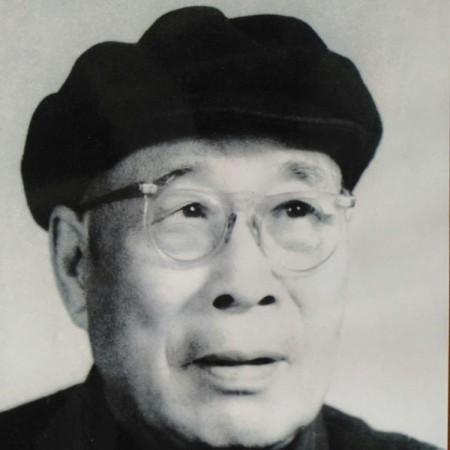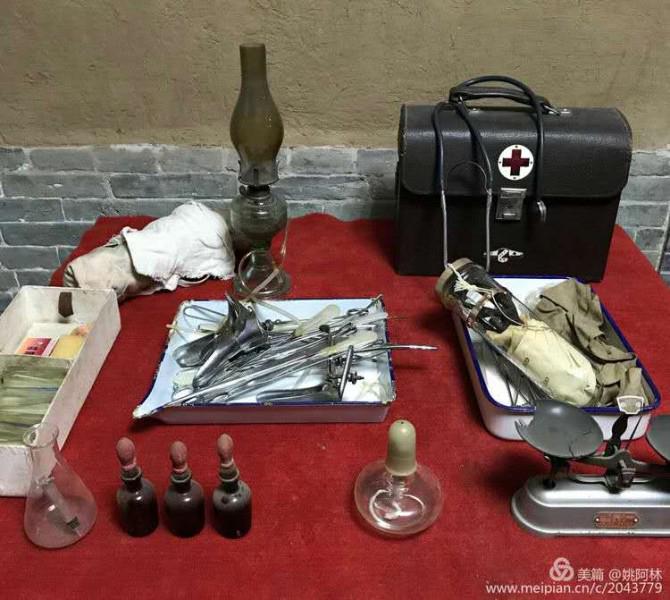Zhang Tongzhai was one of the first physicians to be trained at the Shansheng Hospital, which was founded by foreign missionaries in Linyi, Shanxi Province. After graduation, he resigned from the national health system and opened a clinic to treat more ordinary civilians. During the Anti-Japanese War, he invested in and began a field hospital to treat and protect anti-Japanese forces.
Zhang Tongzhai (1903-1988) was a well-known Christian, patriot and medical professional in the Linyi health care community. Formerly known as Zhang Youqin, he was from Xiyi Village in Shanxi Province.
Zhang was born into a Christian family. Because of poverty his parents left their hometown to work in a church in Linyi City, where he was born. At the age of 17, he worked as a teacher after graduating from high school. Later he went on to study medicine at the Shansheng Hospital, which was founded by the China Inland Mission in Linyi. A whole new chapter was opened in what had been an ordinary life.
The Shansheng Hospital has a long history, with ground breaking achievements in the local area in modern medicine. According to historical records, in 1893 Dr. William Millar Wilson and his wife, who were part of the China Inland Mission, came to Linyi to open a church-run hospital for male patients. In 1900, the Boxer Movement broke out and the hospital was burned to the ground. On September 7, Shanxi's Governor Yu Xian executed the Wilsons (the couple and their children), other foreign missionaries and Chinese Christians, a total of 61 people, by the gate of the Governor’s office building. In 1901, the Boxer Protocol was signed. In accordance with the wishes of the Wilsons’ relatives, the compensation was to be used for establishing a church hospital to treat male patients. In 1912, the British missionary Dr. John Cecil Carr was responsible for building a hospital in memory of the martyred Wilsons, called the Wilson Memorial Hospital (in Chinese, the Shansheng Hospital). It was a hospital with nearly a hundred rooms, including an outpatient clinic, offices, patient lounges, sanitizing rooms, pharmacy, operating rooms and patient wards. Around 1920 the Shansheng Hospital acquired about 8 hectares of land on the northwest side of the hospital where they built a hospital for females. Meanwhile, they opened a three-year course of medicine enrolling children of Christians who had graduated from high school.
It was at this time that Zhang Tongzhai came to study. In China at that time only a very small number of professionals, apart from traditional Chinese medical practitioners, practiced Western medicine. The teaching doctors who were assigned to the Shansheng Hospital at that time were among the top academics in the United Kingdom. All the textbooks were in English. By the time Zhang graduated, he was among the best students there. In addition to studying Western medicine, he learned from the authentic faith and personal examples set by the foreign medical missionaries. In them, he saw the manifestation of Christ's spirit of charity and this had a positive influence on his life.
After graduation, he was employed as a full-time physician by the Yuncheng County government. However, because of the corruption he experienced in the government which made it difficult to achieve his dream of saving people medically, he resigned from his official position and went back home to open the Yanling Clinic and the Minsheng Clinic. He followed Christ's great love by treating the poor and had a good reputation in the community.
During his practice, he got to know members of the anti-Japanese forces and often used his clinics as a place of safety for the fighters.
On an early winter morning in 1937, Zhang's first son was born. While the whole family was celebrating the new born baby, the Japanese army bombed Linyi City. Right after the bombing, he was invited to the home of the local county chief to save the chief’s brother, who was knocked unconscious by the bombing. By the time Zhang arrived, the man's heart had stopped beating for more than twenty minutes! Being highly skillful, he immediately performed CPR and attempted to save the man. Finally the patient’s heart began beating again and he regained consciousness. It was a miracle. The chief's whole family knelt before him and earnestly asked how they could repay him. However, Zhang suddenly thought of his family’s safety. He didn’t receive any money for what he had done, but asked for a horse cart so that he could use it to carry his family to a mountainous area where they would be safe from the fighting. So on the second day after his son was born, Zhang led his family on a grueling trek of more than 60 miles, moving his Minsheng Clinic to a village in the Taiyue mountainous area. There, he formed a field hospital for anti-Japanese forces.
The conditions were tough and the battles were fierce. The frontline constantly sent the wounded to him. There was a lack of medical supplies so he donated his own medical equipment. With his superb medical skills and knowledge, day and night he worked and saved many patients. Hundreds of people were treated over a two-year period. During that time he offered courses to train a number of medical staff for the resistance forces.
At the same time, he asked his brother Zhang Youxuan to bring all the medical equipment and medicines from his home to the anti-Japanese county chief Li Congwen, who was stationed in the Pillow Village of Liliangshan Mountain. There, Zhang opened a field hospital for the county government.
In 1948, he returned home to open the Fumin Clinic in Xiyi Village. As a Christian physician, he treated every patient the same. To the poor he offered free services and medicine. The local people gave him a nickname, "the reincarnated Huatuo" (who was a very famous ancient Chinese practitioner). Every day he would see a lot of patients including those from neighboring counties and other provinces.
After 1949, he took the county’s medical qualification examinations and obtained a physician certificate issued by the Central Ministry of Health. With the support of the county people's government, he founded the Minsheng Hospital in Linyi City and later converted it into Linyi County People's Hospital (now incorporated into the Yudu District People's Hospital). After the establishment of Linyi District People's Hospital, he served as its first president.
During his career in the state hospital, he remembered the sufferings of the people. He was particularly concerned about the patients with financial difficulties. If they were really unable to pay for the services, he would waive the medical expenses.
When the state called for support for the remote mountainous areas, he arranged for his second daughter, Zhang Xiling, who graduated from a medical college and had worked as a doctor in obstetrics and gynecology in a county hospital, to work in the mountainous area of Pu County. She worked there in difficult conditions for forty years.
When the Cultural Revolution broke out the rebel groups forced him to retire. He returned home without complaint. Back home he ran a clinic, studied traditional Chinese medicine and invented a special treatment for women's cervical erosion and gynecological bleeding, a medical powder that combined Chinese and Western medicine. Later he founded the Zhang Tongzhai Maternal and Childrens’ Hospital. He was also employed by the municipal hospital to supervise and guide its clinical services for eight years. In the same hospital he ran a medical training course to train a group of rural doctors. He contributed to the development of rural health care until he was 75 years old.
On February 3, 1988, Zhang died of illness at the age of 85 in his home, Xiyi Village. On hearing the news, many people came from everywhere to mourn and say goodbye to him.
On the 100th anniversary of Mr. Zhang's birth, Yudu District of Linyi City held a symposium attended by medical professionals who spoke highly of Mr. Zhang's dedication.
- Translated by Charlie Li












